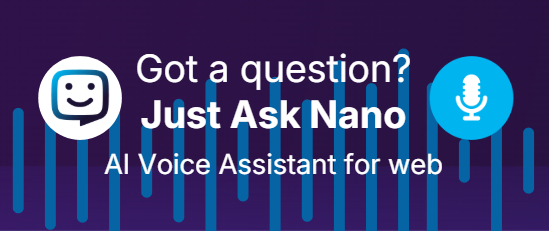
How AI & Automation is helping Small Businesses to Grow
It's true that small and mid-sized businesses (SMBs) might have fewer resources than their enterprise counterparts, but thanks to technology they are no less ambitious about digital transformation. That's why so many are rapidly adopting AI assistants and using automation to compete, grow, and streamline operations. From reducing manual tasks to empowering staff and delighting customers, these tailored AI tools are reshaping how businesses interact with their audience.
Chatbots are now fully AI-powered Assistants
Forget old-school, rules-based chatbots that react to set keywords. Powered by large language models, today’s AI assistants are much smarter representing a quantum leap forward in terms of responsiveness and sophistication. These systems understand natural language, use generative AI to interpret sentiment and grasp context, and can engage in flowing conversations that feel remarkably human. They can:
- Understand natural language — no more forcing customers into rigid menu choices.
- Maintain conversation context, even over several exchanges.
- Apply sentiment analysis to respond empathetically.
- Handle multi-channel, multi-step queries without losing coherence.
- Proactively engage users when they show frustration or intent. This is exactly how businesses can make digital interactions less static and more intuitive—available on web, phone, messaging, social media, kiosks, smart speakers, and apps.
Enhanced customer experiences
For smaller businesses, implementing an AI assistant to answer questions on the website delivers immediate customer experience benefits, and can usually cover relatively simple processes with minimal set-up. Today, with the addition of generative AI, increased integration, and more sophisticated workflows an intelligent AI Assistant is able to support an almost limitless list of processes. For small and growing businesses the key is to evaluate where time saving or enhancement opportunities exist - and to choose automation projects which support and work in harmony with their human team.
Tips for success
If your considering AI and automation, it's worth thinking about:
- Start with high-volume, straightforward use cases – For example, product inquiries, business hours and logistics, return policies – before expanding to more complex scenarios.
- Ensure your AI assistant reflects your brand voice and tone – casual and friendly or professional and formal, depending on your identity.
- Create clear pathways to human support when queries exceed the AI's capabilities, and consider how questions will be routed through to your team, for example using a live chat feature or connecting to your phone system if you don't have a contact centre.
- Consider how you plan to measure effectiveness and ensure that you are able to capture the metrics you need to calculate return on investment
- Regularly review and audit conversations to identify improvement opportunities and refine responses.
The gap between businesses offering intelligent AI assistance and those relying solely on static FAQs or basic contact forms will widen dramatically in the coming years. Customers increasingly expect immediate, helpful and personalised interactions – and they'll gravitate toward businesses that provide them.
Are you ready to begin your transformation?
With enterprise‑grade service, multi-channel support, no-code deployment, pay-as-you-go pricing, and demonstrable ROI, AI assistants are no longer optional, they’re essential. Don’t let your customers (or competitors) get ahead - start automating key workflows today.
Contact us today for an informal chat about how to get started and which processes to automate first. You can also take a look at our fully searchable use-case directory to explore the many potential benefits that an AI Assistant could bring to your business.







